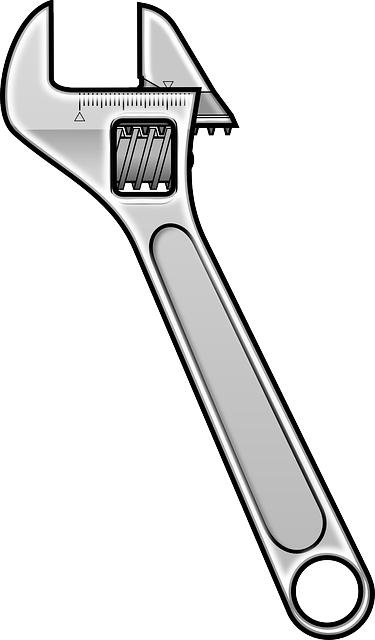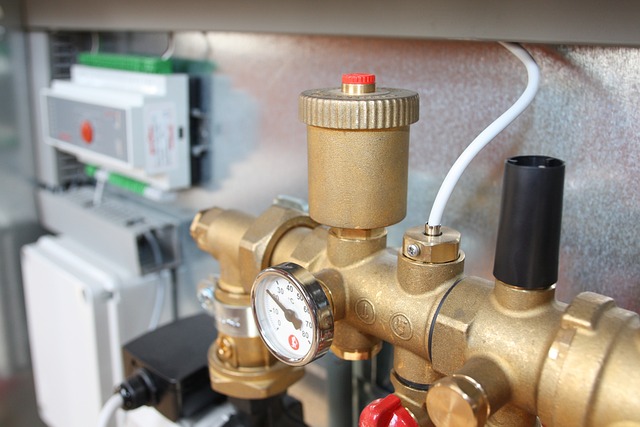Homeowners should prioritize assessing their water quality with the help of a professional plumber to determine the necessary treatment. Water quality is influenced by its source, mineral content, and potential contaminants, which can be mitigated using a variety of filtration systems such as sediment filters, reverse osmosis, UV light purification, carbon filters for chemicals like chlorine and VOCs, and water softeners to address hard water issues. A plumber's guidance is crucial in selecting the right system and ensuring it meets health standards while protecting plumbing infrastructure.
Water softeners are particularly effective for reducing minerals like calcium and magnesium that cause scale buildup, potentially lengthening the lifespan of plumbing and appliances and improving their efficiency. Soft water benefits personal hygiene by being gentler on skin and hair, potentially saving on soap and detergent use. However, a plumber should handle the installation and maintenance of these systems to ensure proper operation and troubleshoot any issues that arise.
It's important to regularly check your water for signs of poor quality, such as discoloration, off-tastes or odors, sediment, and hard water stains, which may indicate the need for a treatment system. Professional plumbers can conduct detailed water analyses to detect harmful contaminants like lead, bacteria, and pesticides and recommend appropriate treatment solutions that ensure your home's water is safe for all uses, safeguarding your family's health.
When considering a water treatment system installation, it's best to consult with a plumber who can assess your water quality requirements and existing plumbing system. They can suggest systems tailored to remove specific contaminants and address hard water issues, considering your household's water usage patterns, the compatibility of your current plumbing with new units, and their maintenance needs. A skilled plumber will ensure optimal performance by pinpointing the best installation locations and helping you avoid common pitfalls that could lead to reduced water pressure or ineffective filtration. Additionally, they can provide information on the economic aspects, including long-term maintenance costs and potential savings on utility bills, making them an invaluable resource for selecting a treatment system that meets your current and future needs for consistently clean, potable water.
When it comes to ensuring the safety and quality of water within your home, understanding the intricacies of water treatment systems is paramount. This article delves into the essentials of water filters and softeners, guiding you through their benefits, limitations, and the critical role they play in maintaining a healthy household environment. Learn how to evaluate your home’s water quality, recognize when a treatment system becomes necessary, and gain professional insights from trusted plumbers on selecting and installing the right system for your needs. With expert advice at your fingertips, safeguard your family’s well-being with informed decisions about your water treatment solutions.
- Understanding Water Quality and the Role of Filters in Home Safety
- The Benefits and Limitations of Water Softeners for Households
- Evaluating Your Home's Water: Signs You Need a Treatment System
- Professional Plumber Guidance on Selecting and Installing Water Treatment Systems
Understanding Water Quality and the Role of Filters in Home Safety

When addressing water quality within the confines of a household, it’s paramount to engage with a plumber or water treatment specialist to assess and understand the quality of water being supplied. Water quality can be influenced by various factors, including the source from which it originates, the presence of naturally occurring minerals, and potential contaminants that may have infiltrated the system during transport. Understanding the composition and purity level of your home’s water is the first step towards ensuring its safety for consumption, cooking, and hygiene practices.
To effectively manage water quality, a variety of filtration systems can be installed by a plumber, tailored to address specific contaminants. These range from basic sediment filters that capture visible particles and suspended silt, to advanced reverse osmosis or ultraviolet light purification systems designed to target microorganisms and chemical pollutants. Carbon filters, for example, are adept at removing chlorine and volatile organic compounds (VOCs), which can affect the taste and odor of water. Additionally, water softeners are a critical solution in regions where hard water is prevalent, as they reduce the concentration of calcium and magnesium, thereby preventing scale buildup in pipes and appliances. By consulting with a plumber, homeowners can select the most appropriate filtration system to safeguard their household’s water quality, ensuring that it meets health standards and maintains the integrity of plumbing infrastructure.
The Benefits and Limitations of Water Softeners for Households

When considering household water treatment systems, water softeners are a prominent choice for improving the quality of water used daily. These systems effectively reduce hardness minerals like calcium and magnesium, which can cause scale buildup in pipes and appliances, potentially extending their lifespan and ensuring efficient operation. Soft water is gentler on skin and hair, leading to improved personal hygiene outcomes and reduced use of soaps and detergents, as these substances lather more easily and effectively in softened water. This can translate into economic savings for households over time. However, the installation and maintenance of a water softener system require professional intervention, often necessitating the services of a plumber to ensure proper functioning and to address any issues that may arise. While water softeners can mitigate certain mineral-related problems, they are not a panacea; they do not filter out contaminants such as sediments, chlorine, or microorganisms, which might be present in household water supplies. Therefore, a comprehensive approach to water treatment that includes both softening and additional filtration steps may be the most beneficial for households seeking optimal water quality. Regular maintenance by a plumber is crucial to maintain the efficiency of these systems, ensuring they continue to deliver the desired benefits without compromising on water safety.
Evaluating Your Home's Water: Signs You Need a Treatment System

When assessing your home’s water quality, it’s crucial to be observant of various signs that may indicate the need for a treatment system. Discolored water, often appearing in blue or rust-colored hues, can signal the presence of excessive minerals or rust from aging pipes. Similarly, if you notice an unpleasant taste or odor, this could point to contaminants such as chlorine or other chemical treatments that municipal systems may use. Sediment in the water, a gritty texture, or particles suspended in it are additional indicators that a filtration system could be beneficial for your household’s water supply. If you frequently encounter stains on fixtures like bathtubs or sinks that are difficult to remove, this might suggest hard water issues that can be addressed with a water softener. It’s advisable to engage a professional plumber to conduct a thorough analysis and provide insights on the most appropriate treatment system for your specific situation. They can test your water for a range of contaminants, including lead, bacteria, and pesticides, and recommend systems that effectively address these concerns. By taking proactive steps with the help of a qualified plumber, you can ensure that your home’s water is safe for drinking, cooking, and everyday use, providing peace of mind for your family’s health and well-being.
Professional Plumber Guidance on Selecting and Installing Water Treatment Systems

When selecting a water treatment system, it’s advisable to consult with professional plumbers who possess the expertise to evaluate your specific water quality needs and home infrastructure. These experts can guide you through the various options available, such as filters for sediment, chlorine, or lead removal, and softeners for addressing hard water issues. They will consider factors like the volume of water your household uses, the existing plumbing system’s compatibility with the treatment system, and the frequency of maintenance required. A professional plumber can also assist in identifying the best location for installation to optimize performance and ensure that the system integrates seamlessly with your home’s water supply. Their guidance is crucial in preventing common issues such as poor water pressure or improper filtration due to incorrect sizing or placement of the treatment unit. Furthermore, a seasoned plumber will provide valuable insights into the long-term costs and potential savings on plumbing maintenance and utility bills that result from a properly functioning water treatment system. Their hands-on experience is invaluable when it comes to selecting a system that not only meets your current requirements but also adapts to future needs, ensuring you have access to clean, safe drinking water for years to come.
In conclusion, maintaining the quality and safety of household water is a pivotal aspect of home maintenance. Homeowners should be well-versed in the types of water treatment systems available, such as filters and softeners, and the specific needs of their water supply. Filters play a critical role in ensuring drinking water is free from contaminants that pose health risks, while water softeners can address hard water issues, enhancing appliance longevity and personal comfort. A thorough evaluation of your home’s water, which may involve professional plumber services for accurate testing and guidance, is essential to select the most appropriate treatment system. By doing so, you can effectively mitigate potential health concerns and protect household fixtures. It’s a proactive step towards safeguarding the well-being of your family and property, ensuring that your home’s water is as clean and functional as possible.
